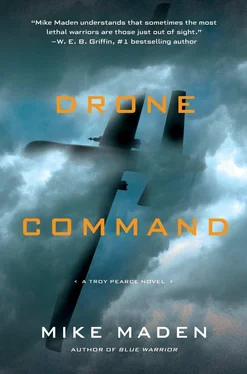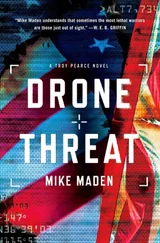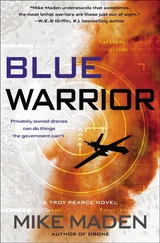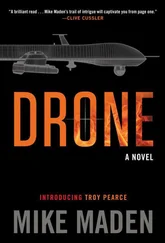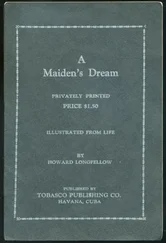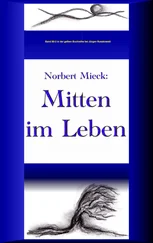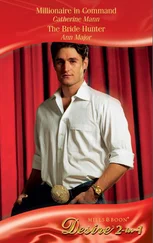His parents were both high-ranking Party members and accomplished musicians who were tragically purged and reeducated during Mao’s Great Proletarian Cultural Revolution. That ended their dream for their only child to follow in their artistic footsteps, but Sun never lost the love of music they had instilled in him from an early age. Sun was a gifted musician, a prodigy, really. But musicians and other artists — particularly those favoring Western “bourgeois” forms and instruments like his parents had — were held in some suspicion during Mao’s sadistic reign, so he was guided into a career in chemistry by his grandfather that led, ultimately, to politics. He still worshipped his long-deceased mother and father; the time with his cello was time spent with their memories and the most pleasant moments of his idyllic childhood. It was also an opportunity to process the events of the coming day.
This morning, Sun took up the bow and played from memory the famous Adagio in G minor, improvising the part written for the first violin, his mother’s orchestral seat and preferred instrument. The familiar neo-Baroque composition was a passionate, maudlin affair, but it was his mother’s favorite and thus his. He needed his parents’ encouragement to face the day. Today’s secret meeting with select members of the Standing Committee was fraught with peril — and promise.
They would question his decision to allow Admirals Ji and Deng to embark on this reckless adventure. But he would tell them that even if he were inclined to stop them, an attack on the base or on the fleet once at sea was simply not feasible. Admiral Ji’s popularity within the Party was greater than his own, and the Mao Island campaign was enthusiastically embraced by the officer corps. Besides, nothing would please China’s enemies at home and abroad more than to see the PLA and PLAN turn on themselves.
But Sun understood the Standing Committee’s concerns. By any measure, this truly was a reckless action, but he was of the opinion that Ji would actually pull it off. The United States would avoid war with China at all costs, if for no other reason than the fact that the Americans had been engaged in the Global War on Terrorism for more than a decade and they were exhausted. Even their armed forces were reaching a breaking point, and the budget freeze had slowed American defense spending while China’s increased by double digits every year. But Sun was confident of American appeasement for another reason.
The Americans were idiots.
China’s trade surplus with the U.S. was on the order of hundreds of billions of dollars annually. China used those billions to buy American CEOs. Nothing mattered more to American executives than profits. They were more than happy to sacrifice American national interests in the name of stock prices, market share, and bonuses — all of which were tied to privileges awarded them by the Chinese government, privileges based on compliance with Chinese national interests.
American congressmen, in turn, were in the CEOs’ pockets, groveling for campaign dollars and lucrative postretirement board memberships. Sun marveled at America’s blindness. How could they not see that they themselves held all the cards? China was the one who had the weakest hand. Shutting down trade with China would collapse China’s economy, not theirs. But the spirit of globalism and “free markets” had so infected the American political establishment that a bloodless trade war was more feared than an actual war in graveyards like Afghanistan. Capitalists would, indeed, sell him the rope to hang them with. And, apparently, they were willing to tie the noose and even pull on the other end if it meant an increase to the bottom line.
In Sun’s mind, the worst-case scenario could actually prove to be a bonus. It would be a national tragedy, certainly, if Admiral Ji and his fleet were attacked by the Americans or Japanese and sunk, but in reality, the death of Admirals Ji and Deng would eliminate his two greatest uniformed opponents and permanently discredit the adventurism of the so-called patriotic militarists. Discrediting military adventurism would also allow him to push forward with his military reforms. China was spending far too much money on defense that could otherwise be spent on economic development and education for the tens of millions of Chinese still trapped in rural poverty.
Better yet, a defeat at Mao Island would end Vice Chairman Feng’s political career. Feng was the greatest civilian threat to his presidency and the strongest opponent of his anticorruption reforms. Sun and his allies believed that failure to end corruption would result in the collapse of the political and economic legitimacy of the state. Revolution, civil war, or dissolution would be the only possible outcomes. But Feng was still too strong to openly oppose.
However, if Admiral Ji and the others pulled off the Mao adventure and successfully captured the Diaoyu Islands, Sun would claim victory for himself by running to the head of the parade. By not opposing Ji, he appeared to be supporting Ji’s actions, and if Ji succeeded, it would only strengthen Sun’s position with him, and Ji was as fervent about anticorruption as he was. The two of them would pose a formidable alliance against Feng and his cronies. It might yet cost him the presidency, but at least China would be saved.
Sun found his fingers playing out the last high, hopeful notes of the adagio. He felt his mother’s smile. He could face anything now. A soft knock on the door interrupted his thoughts.
“Yes?”
An aide entered. “I’m sorry, sir, but there’s phone call for you. It’s quite urgent.”
Sun thanked him, told him he’d be in his office presently, and waived him away with his bow. The caller could wait. He wanted to play the last fifteen bars again.
ON BOARD THE TAI SHAN
EAST CHINA SEA
ONE HUNDRED MILES SSE OF NINGBO NAVAL BASE
18 MAY 2017
Admiral Ji stood on the flying bridge of the Tai Shan , his flagship. He greeted his old friend, the rising sun, as it crested the wine-dark ocean. The cold, salty breeze stung his face, but he was warm beneath his thick woolen greatcoat. He was as happy as he could remember. Ji was a man at the peak of his powers, the admiral of China’s largest invasion fleet since the days of the great emperors. Today he would make history. China would assume its rightful place under heaven, and the world would never be the same again.
The newly built Tai Shan was a giant 210-meter-long amphibious transport dock ship carrying a battalion of PLAN marines, two French SA 321 Super Frelon transport helicopters, and four Russian Zubr-class troop transports, the world’s largest military hovercraft.
The Tai Shan was well guarded by its escort of Type 056 corvettes and Type 052 guided-missile destroyers, including the Kunming. Both classes of vessels possessed powerful long-range antiship, antiair, and antisubmarine systems. Two diesel-powered Kilo-class submarines shadowed the Tai Shan as well. The task force wouldn’t be complete until Admiral Deng arrived with the aircraft carrier Liaoning and a full complement of conventional jet fighter-bombers along with six of the Lijian UCAVs. Once the Liaoning and its support ships rendezvoused, Ji would transfer his command via helicopter to the Liaoning. Per their battle plan, they would proceed toward Mao Island and the Diaoyus, careful to not accidentally signal that the task force was intent on the long-awaited invasion of Taiwan. It wasn’t.
In Ji’s mind, the Taiwan campaign would be his crowning achievement and the first goal of the PLA Navy once he was installed as president of the People’s Republic. Shaming the Americans into backing down over the Diaoyus would finally convince the rest of the world that the United States was no longer a reliable ally, and the rebellious Taiwanese would either capitulate or suffer the mainland’s wrath in a lightning-swift war of reunification. The Mao Island campaign was the key to China’s rise and dominance in the East. It was as bold as it was necessary, which was why Ji was able to convince a significant number of PLA and PLAN flag officers to support the adventure, including Admiral Deng, commander of the South Sea Fleet. Neither he nor Deng were under any delusions that the Mao task force could withstand a direct confrontation with the U.S. Navy’s vastly more powerful Sixth Fleet — but the Wu-14 virtually guaranteed that such a confrontation would never occur.
Читать дальше
